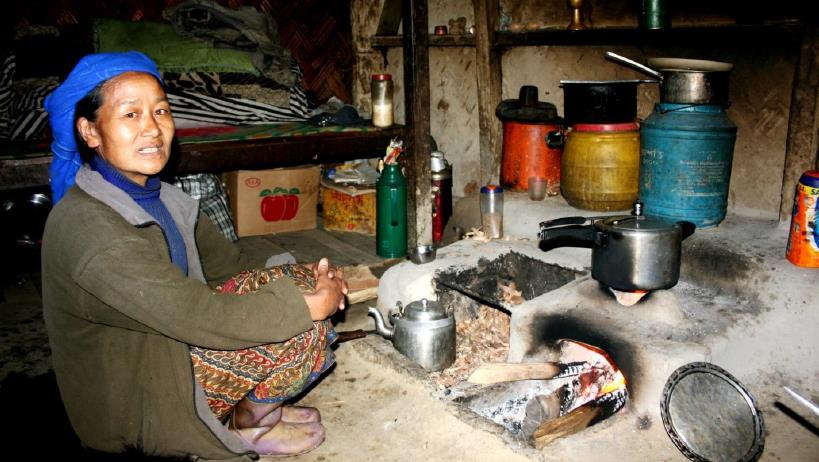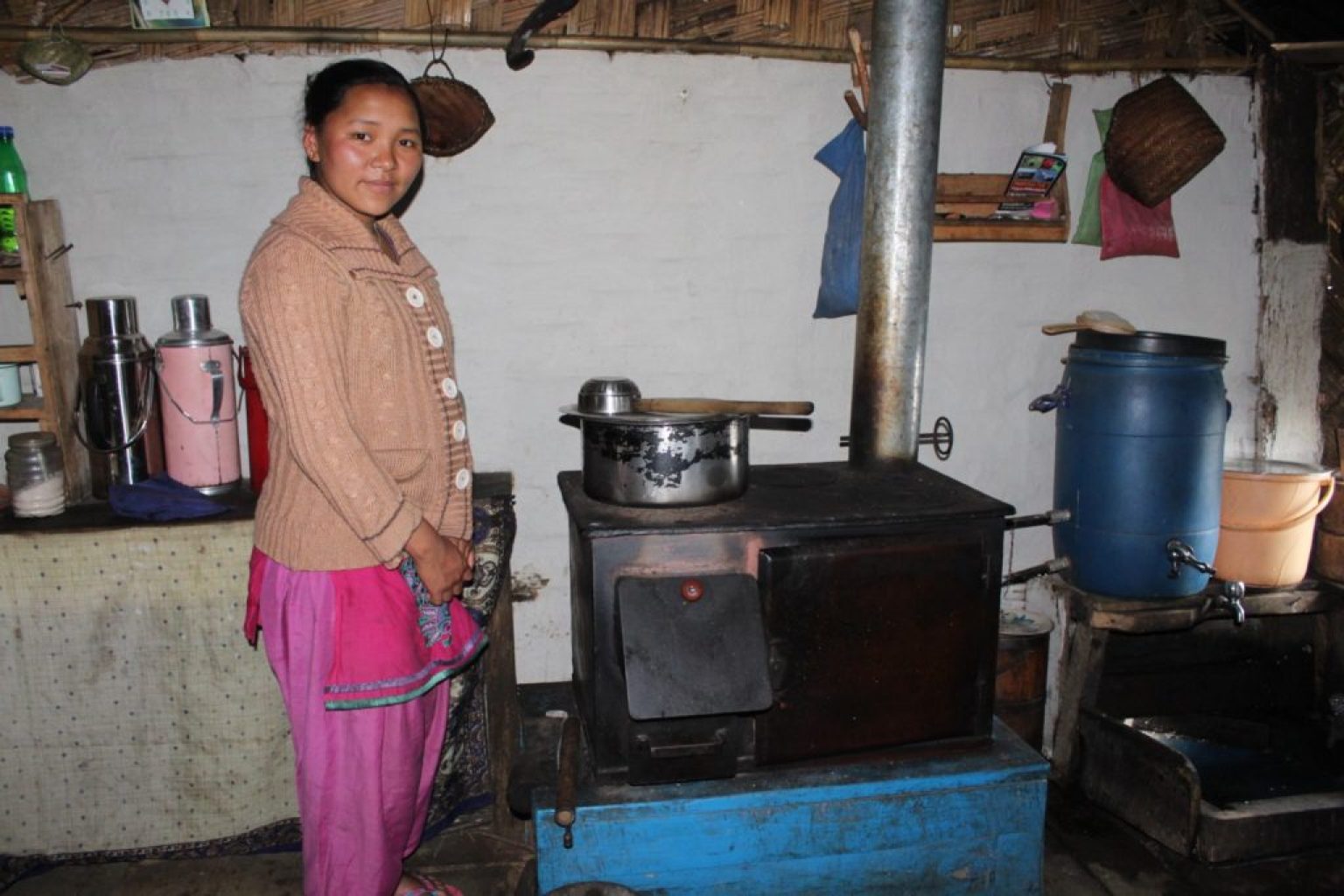
A woman in Nepal has some unexpected experiences that put her on a path towards feeling better and environmental stewardship.
Burning eyes. Headaches. Difficulty breathing.
These are some of the consequences of using traditional cooking stoves in poorly ventilated homes. Unfortunately, this is the reality for many people living in rural parts of the developing world.
According to WHO, about 3 billion people worldwide use either open fires or traditional cookstoves. Nim Dolma Sherpa was one of these people — dependent on her mud stove for cooking and heating.
Nim is a 28-year-old woman of Dobato, Ilam. Her inefficient stove was part of a bigger issue that plagues much of the developing world: livelihoods that are severely limited by scarce income opportunities and poor access to modern appliances and technologies.
The setting of this story is in Dobato of Eastern Nepal’s Panchthar-Ilam-Taplejung (PIT) corridor — part of a global biodiversity hotspot that is home to 25% of the country’s red panda population and one of Red Panda Network’s (RPN) priority conservation sites — where subsistence agriculture and animal husbandry are common practices.

Local woman in eastern Nepal with traditional stove. ©RPN
This is not a setting congruent with environmental protection. Some of the primary threats to red pandas in the PIT corridor are livestock overgrazing and agricultural conversions, including slash-and-burn.
Traditional stoves can have devastating effects on the environment. They consume large amounts of firewood which causes deforestation and habitat degradation. The combustion process releases unsightly black carbon which affects local air quality and emits carbon-based greenhouse gases that contribute to global warming.
Inside the kitchen, inefficient cookstoves produce thick smoke, soot, and unburnt volatile organic matter that tarnishes equipment, stains walls, and harms the resident’s health.
Nim’s life changed in 2017 when RPN launched an ecotourism initiative in Dobato to help boost the local economy and foster red panda stewardship among community members. Nim was one of the first to express an interest in running a homestay.
Nim had heard of red pandas; she was aware they were a local species but her knowledge beyond that was limited. This changed when she began the process of working with RPN to establish a homestay. Nim now understands the significance of red pandas as a flagship and indicator species of the Himalayan forests.
Ecotourism in Dobato was part of RPN’s over-arching sustainable livelihood program which also provided Nim with an improved cooking stove (ICS). This seemingly simple upgrade in a kitchen appliance had extraordinary impacts.

Nim Dolma Sherpa and her new ICS.
Nim used to be regularly afflicted with burning eyes, headaches and even had difficulty breathing. Thanks to the ICS, she no longer has these symptoms—
“I am so happy to have this new stove. I hope these become common and replace the inefficient ones,” she said.
Nim shared with our field team some of the other ways her life has improved, thanks to the ICS, including she has more time to spend on other responsibilities because her daily cooking time is one-third of what it used to be.
As indoor air pollution in her home has decreased, Nim has noticed an overall improvement in her health. The temperature inside her house also stays constant for longer periods which is very helpful in Dobato’s cold, subalpine climate.
The ICS supports Nim in her goals of preserving the surrounding forest. Her firewood consumption has been reduced by almost half. This is partially due to the stove’s water boiling feature that decreases the demand for extra firewood to boil water.
Nim never expected her life would take such a beautiful turn.
 Credit: Kuniko Kai/RPN
Credit: Kuniko Kai/RPN
“I might not be directly supporting red panda stewardship but by using the improved metallic cookstoves, I am indirectly protecting their habitat,” she shared.
Like the other 135 people in the PIT corridor who have benefited from RPN’s ICS program. Nim now feels empowered to live in harmony with red pandas and the Himalaya’s magnificent biodiversity. Which will be easier without burning eyes, headaches and difficulty breathing.
RPN is thankful to all of our members and partners for helping people like Nim breath better and save red pandas in Nepal.
Interested in supporting programs like ecotourism and ICS distribution? Become a Panda Guardian and provide sustainable livelihoods in Nepal.
